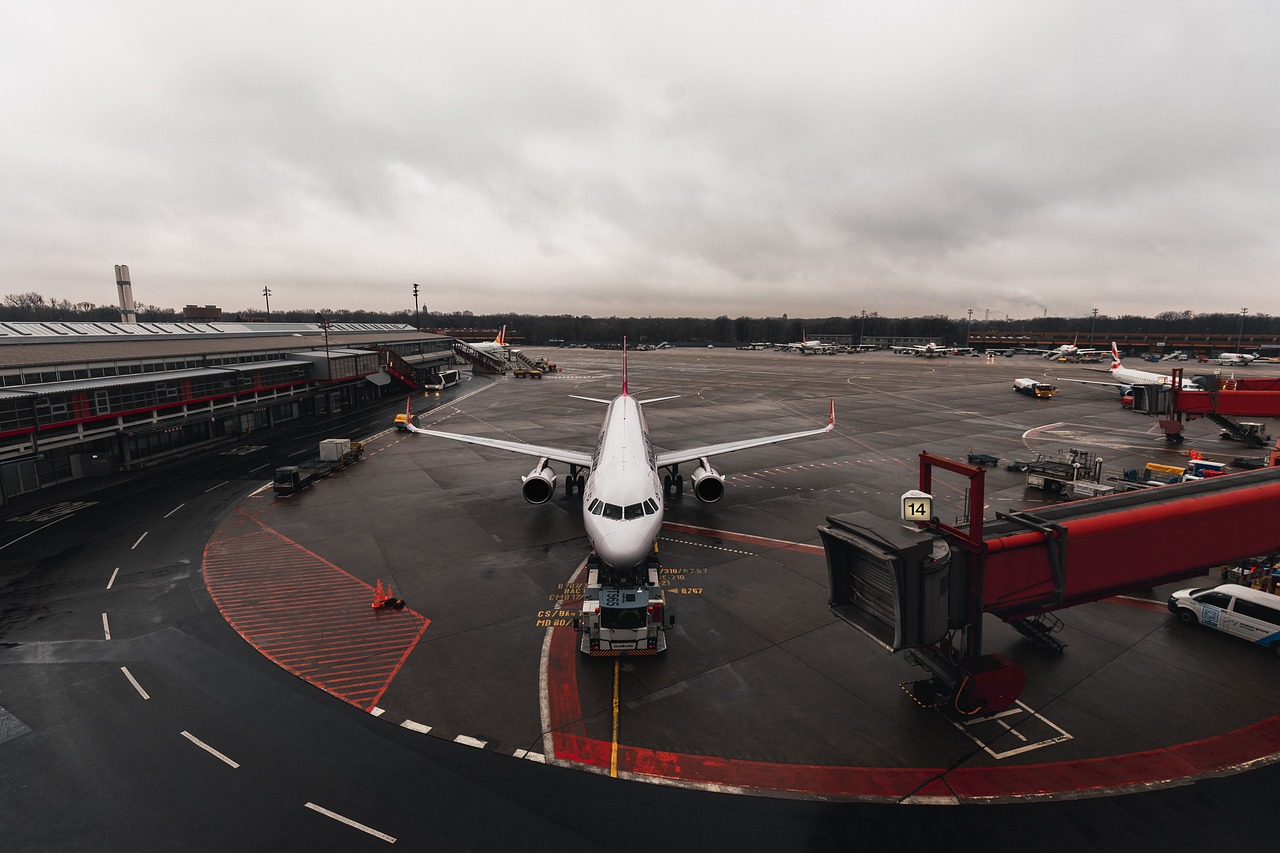„`html
What to Do If Your New Zealand eTA Application is Denied
When your New Zealand eTA application is denied, it can feel like a major setback. The good news is that there are several steps you can take to address the situation. Understanding why your application was denied is the first crucial step. This knowledge can guide your actions and help you determine the best course of action to increase your chances of a successful application in the future.

Understanding Why Your New Zealand eTA Application Was Denied
Common Reasons for eTA Denial
There are several common reasons why your New Zealand eTA application might have been denied. These can include errors in your application, applying under the wrong visa category, or issues related to your health or character. Understanding these reasons can help you take the necessary steps to rectify the situation. Other factors could be incomplete or inaccurate information provided during the application process.
Application Errors or Missing Information
One of the most frequent reasons for eTA denial is application errors or missing information. This could range from simple typos to more significant omissions. Ensure that all the required fields are accurately filled and double-check your documents before submission. Missing critical information can easily lead to a rejection, which could have been avoided with thorough review.
Unsuitable Visa Category
Applying for an unsuitable visa category is another common reason for denial. If you applied for a visa that doesn’t match your intended activities in New Zealand, your application might be rejected. Make sure to choose the correct visa category that aligns with your purpose of visit. This requires understanding the specific requirements and eligibility criteria for each visa type.
Health or Character Issues
Health and character issues also play a significant role in visa application outcomes. If you have a health condition or past criminal convictions, these could impact your eligibility. Ensuring you meet the health and character requirements is essential to avoid denial. You might need to provide additional documentation or undergo specific medical examinations.
Bona Fide Applicant Concerns
Bona fide applicant concerns involve proving that your intentions to visit New Zealand are genuine. Authorities need to be convinced that you will adhere to visa conditions and will leave the country when your visa expires. Providing strong evidence of your genuine intentions is crucial to overcoming this hurdle.

Steps to Take After Your eTA Application Is Denied
Review the Rejection Letter
The first step after your eTA application is denied is to carefully review the rejection letter. This letter will outline the specific reasons for the denial. Understanding these reasons is vital for planning your next steps. Take notes and identify any areas that need correction or additional information.
Gather New Information or Correct Errors
If the rejection was due to missing or incorrect information, gather the necessary documents or correct any mistakes. Ensure all your documents are up-to-date and accurately reflect your situation. This might involve obtaining new certificates or correcting any errors in your previous submission.
Contact the Customer Service Centre
If you have been refused entry and still want to travel to New Zealand, contact the Customer Service Centre for advice. They can provide guidance on what steps to take next and whether you need to apply for a different type of visa. Seeking their advice can give you a clearer understanding of the requirements and help you prepare a stronger application.
Reapplying for a New Zealand Visa
Reapplying for a New Zealand visa is an option if your initial eTA application was denied. Ensure that you address all the issues raised in the rejection letter in your new application. Double-check all information and gather any new documents that might strengthen your case. This might involve applying for a different visa category that better matches your circumstances.
Requesting Reconsideration
If you are lawfully in New Zealand, you can request reconsideration of your application within 14 days of the decision. Submit a detailed letter explaining why your application should be reconsidered, along with any new evidence. This request must be comprehensive and address all points of concern mentioned in the rejection letter.
Preparing a Strong Appeal
If your visa was rejected due to more complex issues, you may need to prepare a strong appeal. Gather all relevant evidence and present a well-structured argument. Consulting with an immigration adviser can significantly improve your chances. The appeal process can be lengthy and requires a clear strategy and strong supporting documents.

| Information | Description |
|---|---|
| Contact Customer Service Centre | Get advice on next steps if refused entry. |
| Request Reconsideration | Must be done within 14 days while lawfully in New Zealand. |
| Review Rejection Letter | Understand specific reasons for denial. |
| Correct Application Errors | Ensure all information is accurate and complete. |
| Choose Correct Visa Category | Ensure visa category matches your purpose of visit. |
| Meet Health and Character Requirements | Provide necessary documentation and evidence. |
| Provide Genuine Intentions | Show evidence of your intent to comply with visa conditions. |

Options for Appealing a Visa Rejection
Understanding the Appeal Process
Understanding the appeal process is crucial if you decide to challenge the decision. There are several avenues available, including requesting reconsideration, appealing to the Immigration & Protection Tribunal (IPT), or making a Section 61 Request. Each option has its own procedures and requirements, so it’s essential to know which one is most suitable for your case.
Appealing to the Immigration & Protection Tribunal (IPT)
If your residence application has been declined, you can appeal to the Immigration & Protection Tribunal (IPT). The Tribunal will hear your appeal and determine the outcome based on the evidence you provide. This process can be complex and usually requires legal expertise.
Submitting a Written Appeal
Submitting a written appeal involves detailing the reasons for your appeal and providing supporting documents. Your appeal must be clear and compelling to convince the authorities to reconsider their decision. Ensure all your arguments are well-documented and backed by evidence.
The Role of the Immigration & Protection Tribunal (IPT)
The Immigration & Protection Tribunal (IPT) plays a vital role in the appeal process. They review the decisions made by Immigration New Zealand and have the authority to overturn them. Understanding their role and the criteria they use for decision-making can help you prepare a more effective appeal.

Seeking Professional Assistance
Consulting with an Immigration Adviser
Consulting with an immigration adviser can significantly improve your chances of a successful appeal. They have the expertise and experience to guide you through the complex process. Professional advice can help you avoid common pitfalls and ensure that your application is as strong as possible.
How Professional Visa Solutions (PVS) Can Help
Professional Visa Solutions (PVS) can provide comprehensive support for your visa application. They offer services ranging from application preparation to appeal representation. Their expertise can make a significant difference in the outcome of your case, providing you with the best possible chance of success.

Special Considerations and Circumstances
Handling Declined Temporary Visa Applications
If your temporary visa application is declined, you have certain rights depending on your existing visa status. All decline letters outline the options available to you. You can apply again for the same or a different type of visa, addressing the issues highlighted in the denial.
Handling Declined Residence Applications
A declined residence application can be appealed to the IPT. The appeal must adhere to strict guidelines and be submitted within a specific timeframe. A non-refundable appeal filing fee is also payable, so make sure you are prepared for this expense.
Temporary Visa Status While Awaiting Outcome
Lodging an appeal does not automatically grant you the right to remain in New Zealand. You need to demonstrate good reasons for staying, including meeting health and character requirements and showing that you genuinely intend to adhere to visa conditions.
Special Circumstances Criteria
Special circumstances criteria are not clearly defined, but they offer an opportunity to present your situation holistically. Providing strong evidence that you will be a good resident can significantly enhance your chances of a favorable outcome.

Legal and Regulatory Information
Role of Immigration New Zealand
Immigration New Zealand is responsible for processing visa applications and ensuring compliance with immigration laws. Understanding their role can help you navigate the application process more effectively. They have the authority to approve or deny applications based on a variety of factors.
Minister of Immigration’s Authority
The Minister of Immigration has the authority to make decisions on immigration matters, including visa applications and appeals. Knowing the extent of this authority can help you understand the potential outcomes of your application or appeal.
New Zealand Customs Service and Biosecurity New Zealand
New Zealand Customs Service and Biosecurity New Zealand play crucial roles in border control and ensuring the safety of the country. Compliance with their regulations is essential for a smooth entry into New Zealand. They have the power to deny entry if you do not meet their requirements.
New Zealand Police’s Role
The New Zealand Police are involved in immigration matters, particularly in enforcing laws and regulations. They can intervene in cases where there are issues related to identity, character, or compliance with visa conditions.

Prohibited Actions and Consequences
Providing False or Misleading Information
Providing false or misleading information in your visa application can lead to severe consequences, including denial of entry. Always provide accurate and truthful information to avoid complications. Authorities are vigilant about verifying the authenticity of the provided information.
Possessing Forged or Fraudulent Documents
Possessing forged or fraudulent documents is a serious offense that can result in immediate denial of your visa application. Ensure all your documents are legitimate and verifiable. Using fake documents can lead to a permanent ban from entering New Zealand.
Non-compliance with Visa Conditions
Non-compliance with visa conditions can result in visa revocation and deportation. Strictly adhere to the conditions outlined in your visa to avoid any legal issues. This includes maintaining the purpose of your visit and not overstaying your visa.
Changes in Circumstances
Changes in your circumstances that affect your eligibility can lead to visa denial. Keep authorities informed about any significant changes that might impact your visa status. Failure to do so can result in severe penalties, including denial of future visa applications.

Key Contacts and Resources
James McLeod – Immigration Lawyer
James McLeod is a seasoned immigration lawyer who can provide expert advice on visa applications and appeals. His expertise can help you navigate the complex immigration landscape and improve your chances of success.
Denise Renshaw – Immigration Expert
Denise Renshaw is an experienced immigration expert who offers valuable insights and guidance. Her knowledge can assist you in understanding the intricacies of the visa application process and preparing a strong case.
Customer Service Centre Contact Information
The Customer Service Centre is your go-to resource for advice on visa applications and reapplications. Contact them for guidance on the steps to take after a denial and for any general inquiries related to New Zealand immigration.
New Zealand Customs Service and Biosecurity New Zealand Contact Information
For issues related to border control and entry requirements, the New Zealand Customs Service and Biosecurity New Zealand are the authorities to consult. They ensure that all entry regulations are met and can provide essential information for your travel plans.
„`
Originally posted 2024-08-06 22:05:12.
